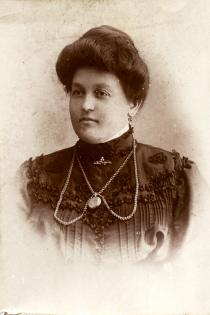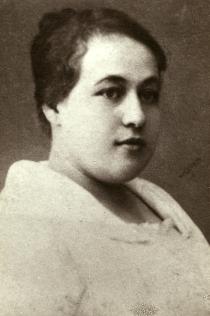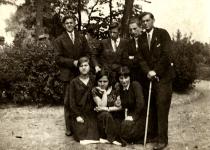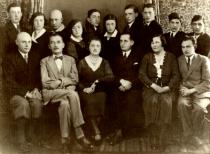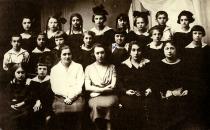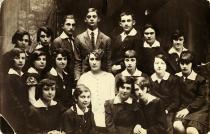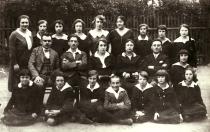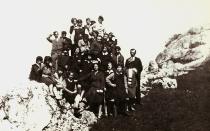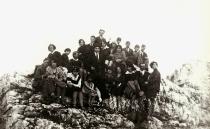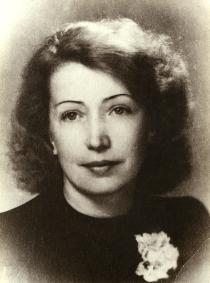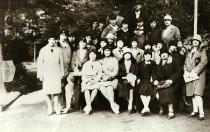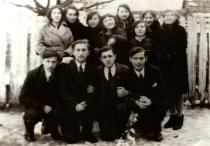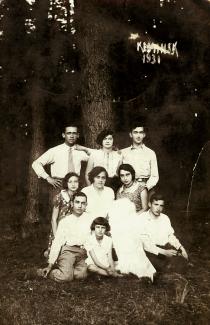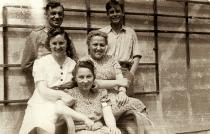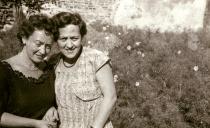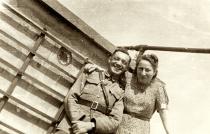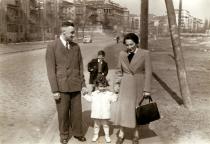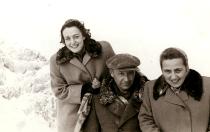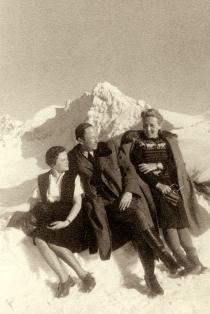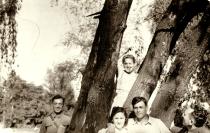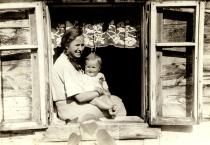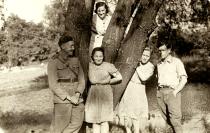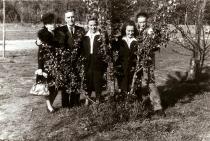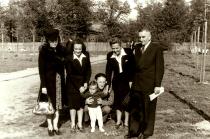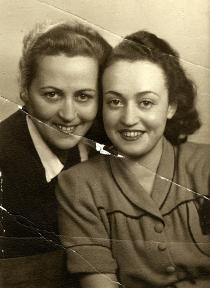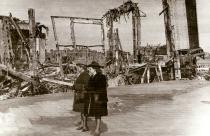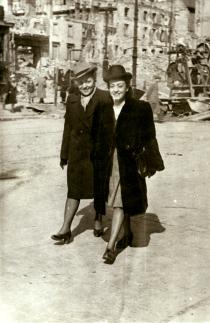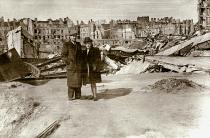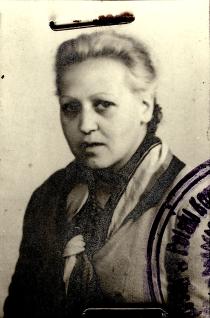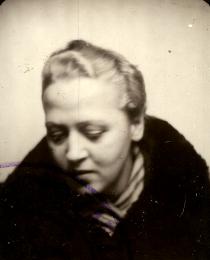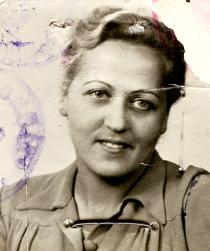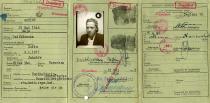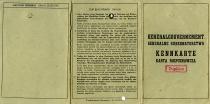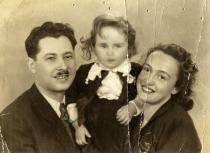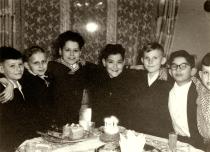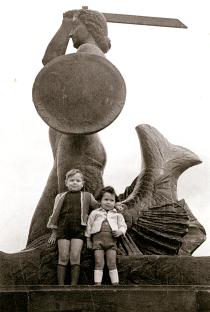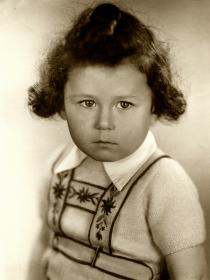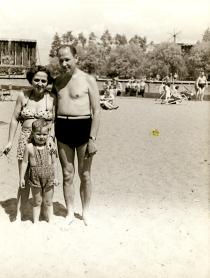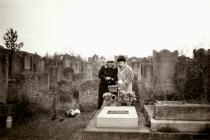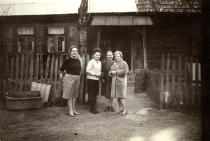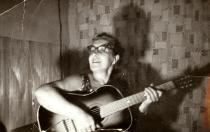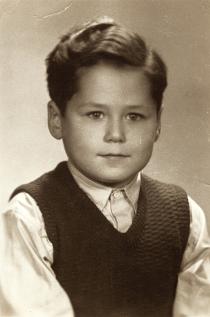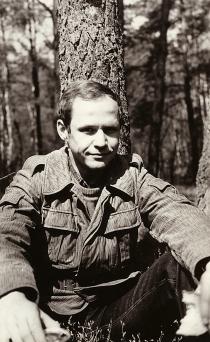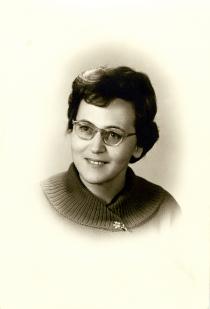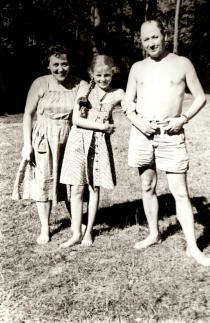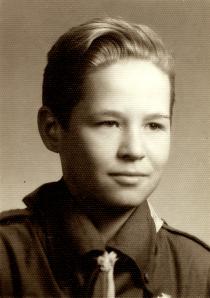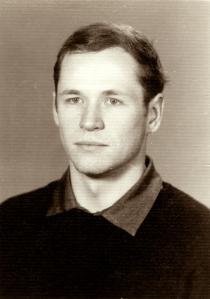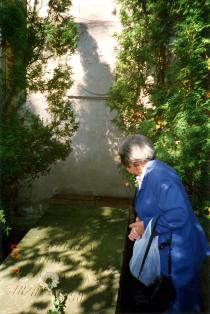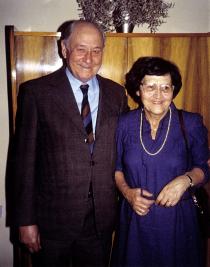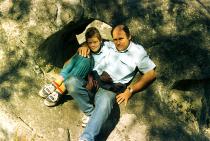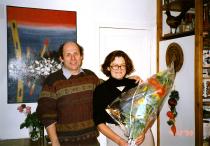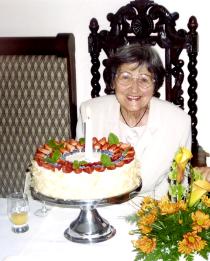That's me in the 1940s in Warsaw.
With my sister I was in Warsaw Ghetto. But we had friends - Poles from outside the ghetto - who cared for us and at the right moment pulled us out. They told us to leave the ghetto, we obeyed.
In January I went out to the Aryan side and in April 1943 they started burning down the ghetto. I knew I had to place my sister somewhere. Myself, I often didn't know in the evening where I'd spend the night, who'd offer me shelter. Though I had the papers, I didn't have a place of my own; I didn't want to expose anyone to danger. But I had some experience in underground activities and I was calmer inside. My sister couldn't hide the fact [she was Jewish], had to be pulled out of the ghetto almost by force, she kept saying, 'I want to die with the others.'
My sister was placed with a family named Skalski. Together with thirteen other Jews, all in a single concealed room. In Praga, on Zabkowska Street, near the Rozyckiego market. Placed with a janitor who had been relocated from the ghetto and given an apartment in Praga instead. Three janitors were supposed to live in that apartment, each in a different room. But the other two had relatives in the countryside and didn't use those rooms, so Skalski had the whole apartment at his disposal. They allotted one room for a hiding place. And when a tenant from the same house came, it was clear he knew about the hiding place, but if someone came from outside, the gendarmes, the Germans, they didn't know because the entrance to the room was properly concealed. And they slept in that room, lived there, kept guard in case of anything. They had straw pallets to sleep on.
They were placed there by a man we knew named Hert, a German name, perhaps he had signed the 'Volksliste,' I don't know. In any case, he was a public notary in Radomsko and later in Minsk Mazowiecki and my father did business with him and contacted him in business matters. He took care of us by securing genuine birth certificates of people who were dead, thanks to which I had a genuine kenkarta, which my sister didn't need because she never left her hiding place. And my name during the occupation was Zofia Dzioblowska.

